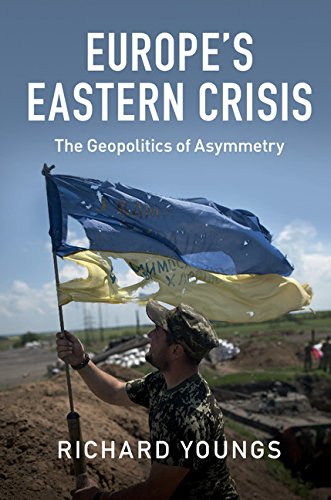Source: Cambridge University Press
In recent years, a series of crises have erupted on the European Union’s eastern borders. Russia’s annexation of Crimea and the subsequent conflict in eastern Ukraine presented the EU with a major foreign policy challenge, both in Ukraine and across the other countries of the Eastern Partnership. In response, the EU has begun to map its own form of “liberal-redux geopolitics” that combines various strategic logics. This book traces the effect of these crises on the foreign policy of the EU, examining the changes in policies toward the countries on its eastern borders, the EU’s review of the Eastern Partnership, as well as the EU’s relations with Russia overall. It goes on to uncover whether the EU has contained the crisis or if it has set up new conditions for more instability in the future.
Advance Praise
“Richard Youngs’s new account of the complex geopolitical context in the Eastern Partnership region provides a nuanced, sophisticated, and empirically rich study that is invaluable in taking into account the opinions of diplomats, policymakers, and civil society in the EaP states themselves.”
—Eka Tkeshelashvili, head of EU Anti-Corruption Initiative in Ukraine, former Georgian foreign minister, and president of the Georgian Institute for Strategic Studies
“Ukraine and other states between these two ‘empires’ feel the heat again, and Richard Youngs’s book expertly maps a complex mosaic of power, ambition, and brinkmanship. Youngs’s engaging and balanced analysis is indispensable reading for everyone trying to comprehend the ongoing geopolitical turn and the evolution of the EU’s foreign and security policy.”
—Jan Zielonka, professor of European Politics, University of Oxford







